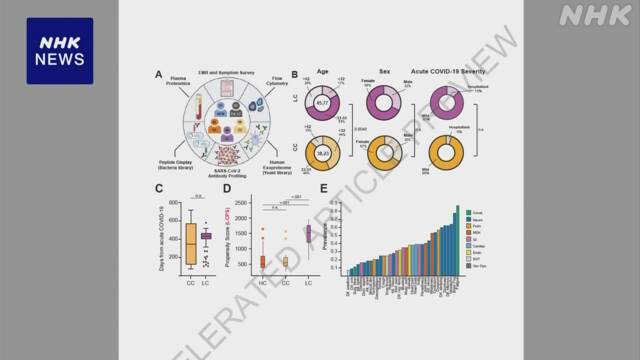An American research team has published research results that people with prolonged symptoms after infection with the new coronavirus see certain changes in substances in the blood, such as a decrease in hormones involved in stress responses. The research team says that it can be applied to the development of accurate diagnosis and treatment methods for the "aftereffects" of the new coronavirus.
This research was published in the scientific journal Nature by a research team led by Professor Akiko Iwasaki of Yale University in the United States.
The research team found that
▽ people who have "sequelae" such as prolonged symptoms such as fatigue and shortness of breath after infection with the new corona for more than one year ▽ people who have no sequelae after infection ▽ people
who were not infectedIn total, the blood components of 1 people were analyzed.
As a result, in people with sequelae, specific immune cells called B cells and T cells in the blood increased, and changes such as activation of the herpes virus that had been latent in the body were confirmed.
In addition, the amount of the hormone cortisol, which keeps the body in a constant state and is involved in stress responses, was halved in people with sequelae or who were not infected.
The research team hopes that using these changes as indicators will lead to accurate diagnosis of the aftereffects of the new coronavirus and the development of treatment methods.
Professor Iwasaki says, "Among the sequelae, malaise is thought to be caused by a decrease in cortisol, and other symptoms may also be caused by unstable immunity and hormone levels.

